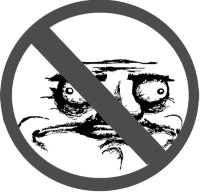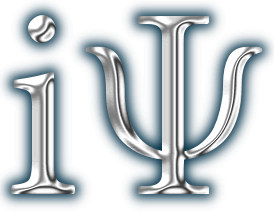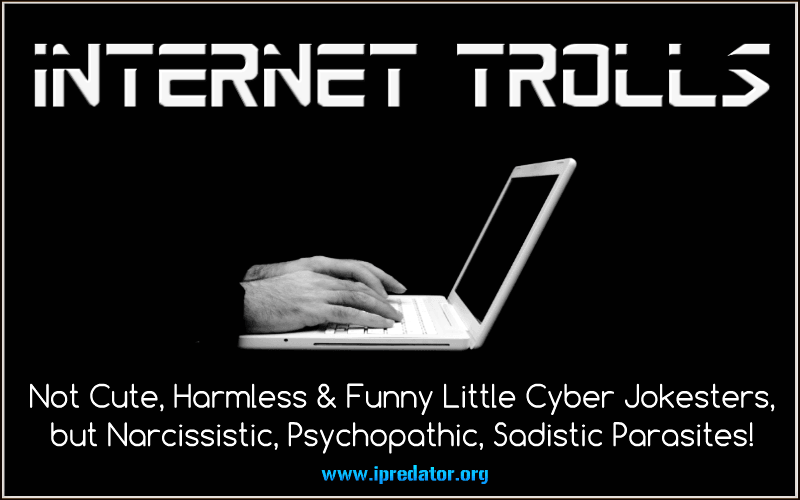Internet Troll Definition,
Cyber Harassers and Provocateurs
Internet Troll is a colloquial expression describing any person(s) who uses Information and Communications Technology (ICT) to instigate, tease, provoke or incite to anger other online users or groups of online users. Their primary goal is to illicit and instigate a negative response from their provocations. For most internet trolls, they have a perceptually distorted sense of personal gain rooted in feeling pride, power, control and self-worth by causing others distress and frustration.
Motivated by what this writer calls successful online provocateurs & cyber hecklers, an internet troll’s sense of power and control is directly correlated to the volume and depth of distress and anger they cause others. Given that their feelings of power and control are causally linked to the amount of negativity they cause others, the internet troll is driven by the adage “The More Online Pain, The More Troll Gain”.
Internet trolls are online user response dependent seeking feelings of power when there is confirmation of the anguish, they cause others. So, entrenched in this cyber illusion of distorted power, the internet troll experiences a sense of accomplishment when their targets attempt to disparage and humiliate them. Just as most iPredator typologies, the internet troll can be best defined by this writer’s construct of Dark Psychology.
Trolls do not adhere to the basic tenets of Alfred Adler’s concept of Social Interest and the concepts of Social Responsibility and Digital Citizenship. They feel no shame or remorse for their provocations and perceive their online activities as a game. As perplexing is it may sound, most internet trolls do not consider the anguish and distress they are causing others. As stated, they perceive their online activities as a game. It is highly unlikely to assume that many internet trolls are sociopaths and psychopaths, but they certainly meet the criteria of lacking empathy, having a minimal capacity for experiencing shame or guilt, exhibit callousness and a grandiose sense of self, which interestingly commonplace to all sociopaths and psychopaths.
For the most part, internet trolls rarely know the person(s) they are targeting and always attempt to maintain their anonymity. Having to maintain anonymity is the prime reason Internet Trolls prefer cyberspace as their playground. As afforded to all online users. The “veil of anonymity” is available to everyone, if chosen, online, but is a priori to internet trolls. Given most trolls share the same personality constructs, it falls to reason cyberspace is their environment of choice for abusing others. Internet trolls are placed in the iPredator behavioral typology of cyber harassment with this writer’s definition as follows:

Cyber Harassment
Cyber Harassment is the use of Information and Communications Technology to harass, control, manipulate or habitually disparage a child, adult, business or group without a credible or implied threat of harm. Unlike physical harassment requiring physical contact, cyber harassment occurs in cyberspace using ICT and is verbal, emotional or social abuse of a person, group or organization.
The primary difference between an online user who engages in cyber harassment and the internet troll is that the troll rarely knows the identity of their target. Although the internet troll engages in the act of cyber harassment, the likelihood of not knowing their target and harassing others for the perceptual distortion of engaging in a game, places them in a class of their own. Just like a cyberbully, internet trolls use the same methods, strategies and cyberbullying tactics.
Just as all criminal and deviant profiles, internet trolls and the magnitude of the psychological devastation they endeavor upon lie upon a spectrum of depravity and immorality. Based on their level of malevolence, an Internet Troll will do anything to experience power and control online. It is common for a troll to post defamatory and degrading information on a Facebook Memorial Page meant to pay homage to a deceased loved one or reputable social cause.
As stated above, to the internet troll, causing others psychological distress follows their mantra, “The More Online Pain, The More Troll Gain”. Also, cybercriminals and online deviants are internet troll Types. A quick Google search of “Types of Internet Trolls” will provide the reader with a plethora of troll typologies. Based on this writer’s research, the internet troll profile is as follows:
Internet Troll Traits
- I. Most often gender male.
- II. Spends prolonged periods of time online and internet addicted or at risk for becoming internet dependent.
- III. Meets all three criteria for being categorized as an iPredator.
- a. A self-awareness of causing harm to others, directly or indirectly, using ICT.
- b. The usage of ICT to obtain, tamper with, exchange and deliver harmful information.
- c. A general understanding of Cyberstealth used to engage in criminal or deviant activities or to profile, identify, locate, stalk and engage a target.
- IV. Tends to have few offline friends and online friends often engage in the same type of online harassment.
- V. Highly susceptible to the states of de-individuation and the disinhibition effect experienced by all online users. For Internet Trolls, these states are highly influential in their online lives.
- VI. They are psychopathological in experiencing power and control online fueled by their offline reality of being insignificant, angry and alone.
- VII. The severity and magnitude of psychological abuse they inflict upon their online targets is directly correlated to their probability of suffering from an Axis I, Axis II or Dual Diagnose mental illness.
- VIII. When online, exhibit a lack of empathy, have minimal capacity to experience shame or guilt and behave with callousness and a grandiose sense of self.
- IX. From a psychodynamic standpoint, Internet Trolls create and sustain an intra-psychic myth of power, greatness and domination. Although all humanity is guided through life by internal myths and archetypes, the Internet Troll’s myths and archetypes are highly distorted.
- X. They are developmentally immature, tend to be chronically isolated and have had minimal to no intimate relationships.
To understand the internet troll at greater depth, please read this writer’s constructs below of iPredator, iPredator Bridge, Dark Psychology, Cyberstealth and Information Age Forensics. At present, humanity is at the beginning of the Information Age with the internet being a mere two decades young. As Information and Communication Technology, social media and the internet becomes increasingly central to all human activities, so too will the dark side of cyberspace and internet trolls seek to spread hatred and malevolence.
Internet Troll Definition
Internet Troll: An internet troll is a colloquial expression used to define an online user who uses Information and Communications Technology (ICT) to purposely and actively provoke, defame, anger, tease, flame, or incite other online users. Often, the internet troll does not know the target recipient(s) of their vitriolic statements and behaviors. internet trolls regularly appear in all forms of online mediums ranging from online video gaming gatherings to chatroom and forum discussions. When the internet troll’s inflammatory statements and actions do not include a direct or implied physical threat to the target(s), their behavior is categorized as cyber harassment. If the troll’s verbal assaults include direct or implied physical threats to their target(s), their actions are then defined as cyberstalking.
The motivations for an internet troll’s provocative, and oftentimes, bizarre behaviors are numerous. Despite the variations in modus operandi, most trolls are seeking attention, recognition, stimulation pseudo-notoriety and retribution for some unknown perceived injustice. Although there is no hard evidence or clinical research validating the psychology of the internet troll, it is commonly believed that the “Veil of Anonymity” afforded to every online user inspires some to engage in egregious behaviors. Those who have begun to investigate the etiology of the troll suggest that the anonymity of the internet contributes to what has been called the disinhibition effect. It has been postulated that internet anonymity leads some to behave in asocial ways coupled with a lack of guilt or remorse for the harm they cause not being in the target’s physical presence or even knowing their identity.
Predatory Trolls Definition
Predatory Trolls: Predatory trolls are a new breed of internet troll that evolved from the classic troll. They are online users who both choose online users randomly and intentionally. Just as classic trolls, predatory trolls can be ex-work associates, ex-partners and loved ones. They may also be unknown online users. Predatory trolls may target others alone, but increasingly work in groups (aka, Troll Triad). Like all trolls, predatory trolls are driven by needs for power, recognition, peer acceptance and control.
Different from classic trolls is that their primary goal is to destroy an online user’s reputation, online presence, and trustworthiness. With the advancement of Information and Communications Technology (ICT), predatory trolls may be employed by groups and governments in covert operations to destroy a target’s reputation.
Predatory trolls seek to destroy their target’s reputation and the reputation of their family members, children, careers and loved ones. They always engage in defamation, slander, libel, disinformation campaigns and criminal defamation. All predatory trolls meet criteria for either iPredator or iPredator Bridge and skilled in Cyberstealth. The response of their target is more than anger, frustration, and anxiety. Depending on the intensity of attacks, some targets become traumatized and may suffer psychological dysfunction. As the Information Age advances, predatory trolls will become increasingly problematic to all aspects of society.

Michael Nuccitelli, Psy.D.
Michael Nuccitelli, Psy.D. is a NYS licensed psychologist, cyberpsychology researcher and online safety educator. In 2009, Dr. Nuccitelli finalized his dark side of cyberspace concept called iPredator. Since 2010, he has advised those seeking information about cyberbullying, cyberstalking, cybercriminal minds, internet addiction and his Dark Psychology concept. By day Dr. Nuccitelli is a practicing psychologist, clinical supervisor and owner of MN Psychological Services, PLLC. After work and on the weekends, he volunteers helping online users who have been cyber-attacked. Dr. Nuccitelli’s is always available to interested parties and the media at no cost. This website and everything created by Dr. Nuccitelli is educational, free and public domain.

